Book Reviews by Genre: Real Life
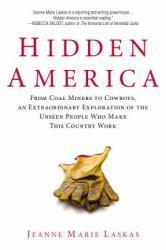
I really enjoyed this book! I'm not much of a nonfiction reader, but Jeanne Marie Laskas kept me interested in all of the stories of Hidden America. I learned so much. I have to admit, I never really think about how my fresh fruit gets to me, but after reading the chapter on migrant workers, I am not sure I will look at my daily apple the same way. Also, I thought she did a great job when she went to Yuma, Arizona to the gun shop. That story didn't turn out like I expected it to. But the best chapter is about our trash and the people who tend to it. I just thought a landfill was a place where our garbage went to never be seen again. But there is a lot that goes into landfills and garbage. This was such a fascinating book! A great read and a really good book for a book group. So much to discuss!

I’ve always loved learning about the holocaust and people’s stories. Elie Wiesel's story is the best one I’ve heard yet. He puts so much emotion into his story and his writing and it makes you feel like you’re in the holocaust. Elie starts his story off by talking about his religion and the church he went to. His instructor, Moshe the Beadle had been gone for so long, and when he returned he had a story of a near death experience with the Nazi's. Of course, no one believed his “story” and they carried on with their lives as normal. One night they got real news that the Nazi's were coming the next morning and that’s when everything bad started happening.
All the walking, traveling, and suffering he went through was very interesting to read. My teacher read this book to the whole class in 8th grade and I instantly fell in love with it.
Reviewer Grade: 9
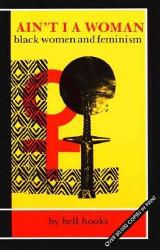
The history behind feminism is deeply engraved into this book. Being a passionate feminist myself, I loved reading this book because it gives me a different look on society and how society treats black women. Bell Hook's purpose was to educate her readers and show how black women were treated with disgust during the times of slavery and further more. The writing is bold, strong, powerful, unapologetic, and true. This book is not just for black women, but for everyone to read and be taught how life really was back then. You will learn so much from this book and hopefully have more respect for those around you. She really stresses on how dehumanizing, sexist, and poisoning people were to black women. An 11/10 read.
Reviewer Grade: 12
A fishing book about an incredible woman fly fisherman.
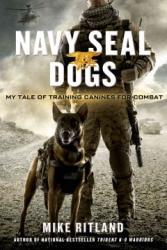
This was a great book. I would strongly recommend it to anyone who is interested in how k9s are used in the military or who is just interested in how special operations forces work in general. The author shares his story of why he joined the military and became a navy seal. He then started his own company that trains dogs for use in the military. You get to read some of his stories from in the military and how amazed he was at what dogs are capable of doing and how many lives they have saved. You will also pick up some dog training tips that you could use to train your own dog. Overall, this was a great book and I really enjoyed it and I think that you will too.
Reviewer Grade: 7
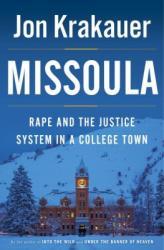
John Krakauer, author of Under the Banner of Heaven, Into the Wild, and Into Thin Air, brings his literary non-fiction style to addressing the topic of rape and sexual assault at the University of Montana, which is located in the titular city, Missoula. Krakauer examines the assaults of five young women with ties to this university during the period of 2008-2012. These case studies examine the culture of sexual assault and how these cases are dealt with by the criminal justice system and the university. Readers should be warned that this book does have some graphic content due to the nature of this topic.
Readers of Krakauer who enjoyed Under the Banner of Heaven will find a similar style of reporting found in this work. Krakauer champions the stories of the five women whose assaults he details as he works to debunk many of the myths surrounding the topic. Most interesting to this reviewer is the research that he presents that not many men commit sexual assault, but those that do tend to be repeat offenders. And many of these perpetrators fail to even realize that their actions are criminal.
Krakauer thoroughly takes to task members of the criminal justice system who oversee the charging and prosecution of these crimes. Other reviewers have found his treatment of those officials to be harsh and one-sided, claiming this to be a departure from Krakauer’s normally unbiased reporting style. This reviewer found that the critical lens Krakauer uses when discussing the many missteps of the criminal justice system to be warranted. He also is critical of the football culture of the area that strives to protect its athletes even if they have harmed others. We see how university officials try to navigate bringing offenders to justice in this type of culture. This book is really more about the culture of sexual assault than it is about Missoula. While it is an emotionally challenging read, it is a worthwhile read and it will hopefully bring more attention to sexual assault and ways that we as a society can prevent these crimes.
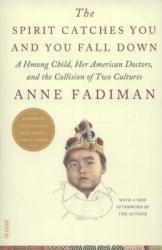
An insightful look at intercultural conflicts in the medical field. This book follows the case of a young Hmong girl named Lia Lee, the daughter of refugees, who presented with epilepsy in her infancy. The author, Anne Fadiman, follows both the parents and the doctors involved in the case, interviewing the key parties and untangling the miscommunication that led to Lia’s eventual brain death. The author is respectful to both sides and manages to explore the conflict that arises over the medical care without placing blame, instead asking what both sides viewed as good medicine, what they hoped to accomplish, and why they were unable to communicate their ideas to one another and agree on how to handle Lia’s treatment. The edition I read also had a helpful afterword in which the author updated readers on where the people she interviewed are now, some 20 years later, and how the hospital in Merced (and other hospitals throughout the country) are starting to change how they train their staff to interact with a multicultural community that might have very different ideas about what good medical care looks like. This book always makes top non-fiction lists, and now that I’ve finally gotten around to reading it I can say that for me it lived up to the hype.
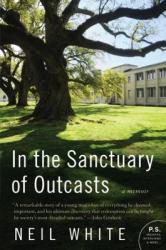
I admit, I didn't know much about leprosy before reading this book. I didn't realize that patients were segregated from society. I thought the disease had been eradicated decades ago! I was impressed with how Neil White told the story of the patients at Carville. Unlike the prisoners housed there, they didn't feel sorry for themselves. They just went on with their lives despite their disease. There was no reason to feel sorry for them.
What I didn't like about the book was Neil White's personal story. I do feel he was remorseful for taking money from innocent people to pay for his big dream of being a magazine publisher and living large. I just didn't like the examples he used when he was trying to express regret like when the first black family moved into his neighborhood or how he blackballed fellow students from joining his fraternity. The worse example was when White discussed how the patients had been disfigured by the disease and how he could "relate" because of the scar on his forehead. That passage really bothered me.
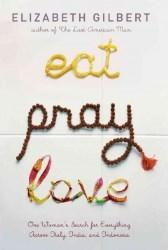
Elizabeth Gilbert has everything a normal person wants: loving husband, country home, a great career, and much more. But for some reason she was not happy, instead she felt confused and lost in her own world of thoughts. So, through a painful process, she leaves behind everything (her marriage, job, home) and plans a year round trip to Italy, India, and Indonesia, hoping that traveling to these places will help her find herself. I began reading this book this year for a school assignment and I have to say I didn’t like it from the cover and the first few pages. What made it interesting was that Eat, Pray, Love is an auto-biography by Elizabeth herself about her journey for self-actualization and also that you are able to learn a little bit more about the culture of these countries. I recommend this book to those who are having trouble about knowing who they are in the world, but while I was able to be intrigued by the book and it did grab my attention, let’s just say it didn’t have me standing on the edge of my seat and isn’t one of the best books I’ve read this year.
Reviewer Grade: 10
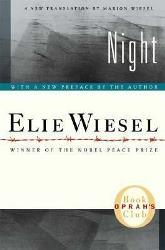
The Boy in the Striped Pajamas was a heartbreaking story, but it was a work of fiction. This story is just as sad, but is written by a holocaust survivor himself. This story will make you cry so beware. It made me cry, but was a complete eye opener to the history of WWII. This book is a classic and will satisfy all audiences with its moving story.
Reviewer Grade: 9
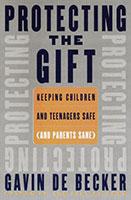
This was a very informative, and honestly slightly scary book. The takeaway is to heed your intuition and gut-feeling regarding the safety of your children. We brought Zoe to a Kidpower workshop, which was just wonderful. Zoe now has some tools to keep herself safe and I feel a bit less worried. Still worried of course, but a bit less... I definitely recommend this book to all parents, especially mothers.
It has taken several days since finishing 'Behind the Beautiful Forevers' for me to put together what I might like to say about it to others. Before now I've basically just resorted to, "Yeah, you should really read this book."
But, yeah, you should really read this book. Even if you're not like me, and you DON'T try to pick at least ONE book about India every time you pile up your requisite stack from the library, you should still really read this book.
Narrative non-fiction books are some of my favorites, and Katherine Boo does an incredible job of telling a true story that reads like a novel. The action takes place in the slum of Annawadi, one of the many shantytowns or slums in the city of Mumbai, India. Mumbai has one of the highest concentrations of people in the world, and nearly 3/4 of the population lives in poverty. Poverty that is abject beyond anything you would see in the United States. No electricity or running water, and diseases that have long been extinct in other developed countries.
Boo has chosen to chronicle the stories and lives of a few of the slum's inhabitants, and it actually gives the reader a closer look at how a specific group of people have inserted themselves into the global market. In a place where so few have so much, and so many have so little, even trash is a commodity that is bought, sold, and traded. Many of the people of Annawadi scrape out a meager existence on the scraps of plastic and metal that are thrown away and discarded by others. I don't think I'll ever look at trash in the same way.
In summary, an excerpt from the advance praise on the book jacket aptly describes the book like this: "There are books that change the way you feel and see; this is one of them. If we receive the fiery spirit from which it was written, it ought to change much more than that." ~Adrian Nicole LeBlanc